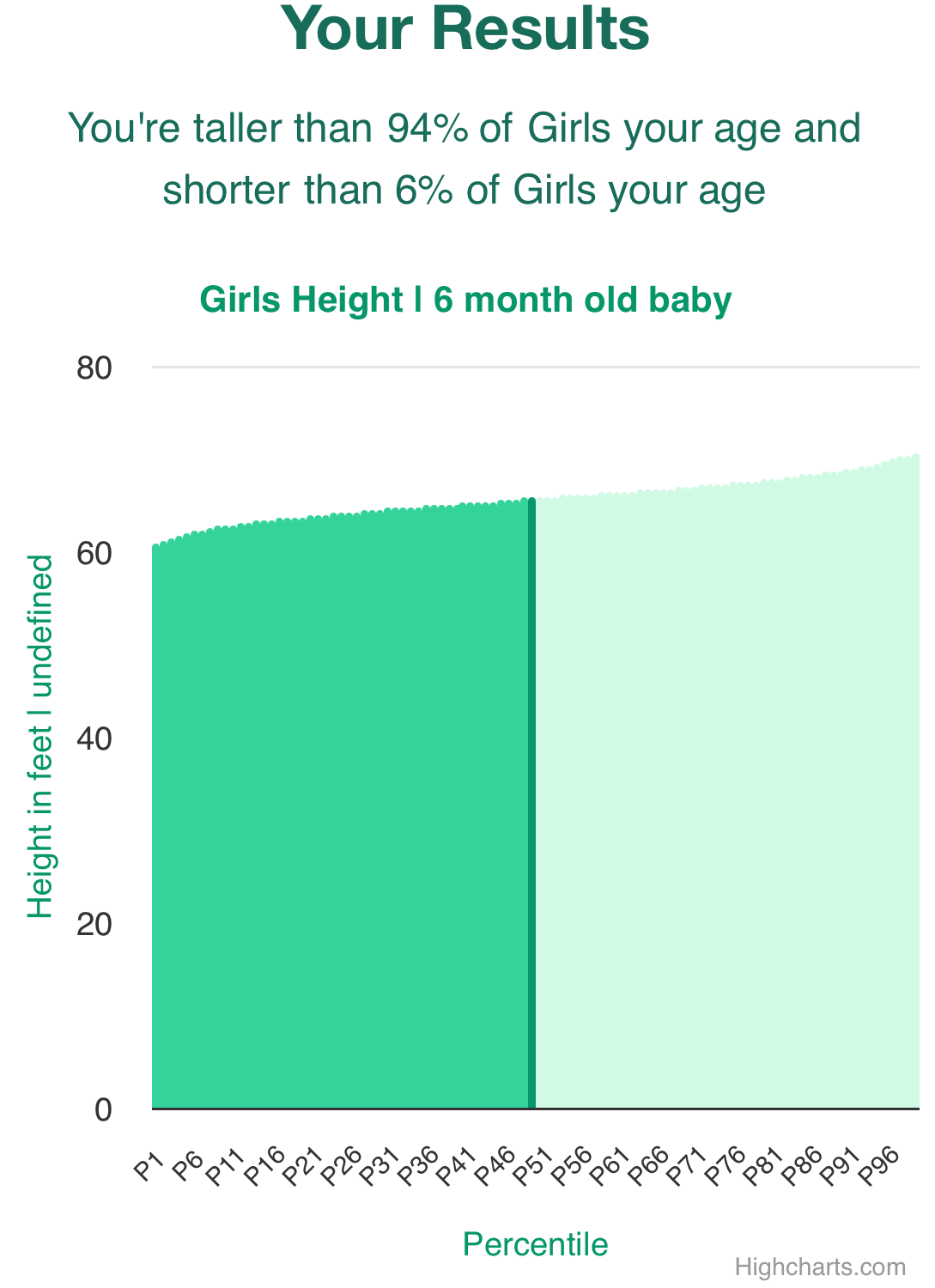Girls Weight chart in lbs for babies 6 month old baby

General Summary: 6 month old baby girls weight
In most cases, weight measurements for 6 month old baby girls will be in the range between 12 and 19 lbs. The average weight for 6 month old baby girls is 15 lbs, according to the CDC and anonymized data from users.
All Results
Enter your weight measurements above to see how they compare
So far, we have recorded [0] weight measurements for 6-month-old-baby girls on LifeMeasure!
(chart updates daily)
See more ages